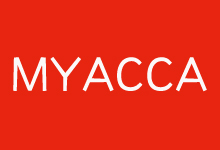Monetary Policy
Monetary policy actions may either:
directly control the amount of money in circulation (the money supply); or
attempt to reduce the demand for money through its price (interest rates).
By exercising control in these ways, governments can regulate the level of demand in the economy. Those who see the use of monetary policies as crucial in the control of macroeconomic activity are known as monetarists.
1. Direct and Indirect Control of the Money Supply
Governments or central banks can directly control the money supply in the following ways:
1.1 Open market operations
If the central bank sells government securities, the money supply is contracted, as some of the funds available in the market are "soaked up" by the purchase of the government securities.
The sale of government securities will lead to a reduction in bank deposits due to the level of funds that have been soaked up.
This in turn can lead to a further reduction in the money supply, as the banks' ability to lend is reduced. This is known as the multiplier effect.
Equally, if the central bank were to buy back securities, then funds would be released into the market.
1.2 Reserve asset requirements (cash reserve ratio): the central bank can set a minimum level of liquid assets which banks must maintain. This limits their ability to lend and thereby reduces the money supply.
1.3 Special deposits: the central bank can have the power to call for special deposits. These deposits do not count as part of the bank's reserve base against which it can lend. Hence, they have the effect of reducing the bank's ability to lend and thereby reducing the money supply.
1.4 Direct control: the central bank may set specific limits on the amount which banks may lend. Credit controls are difficult to impose as, with fairly free international movement of funds, they can easily be circumvented.
Indirectly, governments can reduce the demand for money, and therefore indirectly reduce the money supply, by encouraging an increase in short-term interest rates.
2. Problems of Monetary Policy
Various problems arise with monetary policy.
There is often a significant time lag between the implementation of a policy and its effects.
Credit control is ineffective in the modern global economy.
The relationship between interest rates, level of investment and consumer expenditure is not actually stable and predictable.
Increasing interest rates produces undesirable side effects, including:
Less investment, leading to reduced industrial capacity, leading to increased unemployment (as higher interest rates increase the cost of capital for a company using debt finance).
An overvalued currency, which reduces demand for exports.
3 Measuring the Money Supply
If governments want to control the money supply, it is necessary to be able to measure the supply of money in the economy.
In the UK a number of alternative indicators have emerged, including the following:
M0 Notes and coins in circulation and in banks' tills.
M3 M0 plus deposits at banks.
M4 M3 plus deposits at building societies.
M5 plus private sector holdings of certain types of government debt.
Although M5 may be the most suitable measure to use, it is the hardest to control.
Equally, although M0 is the easiest measure to control, it is probably the least representative of overall economic activity.
ACCA免费学员服务:
>>>【ACCA学期效果评估】评估一下自己现阶段是否适合报考ACCA?
>>>【ACCA考试相关信息查询】ACCA免考政策、教材购买注意事项等,任何不懂的问题都可在这里申请查询。
>>>【ACCA免费代理注册报名】想要报考ACCA,但不清楚ACCA报名流程?点击这里申请免费代注册。
>>>【ACCA机考中心信息查询】查询一下自己所在地区周边是否设有ACCA考试中心?(支持海外地区查询)
>>>【快速上手ACCA的资料领取】做个小测试,不仅可以帮助我们了解您的困惑,更可获取一份ACCA资料!
 守住最后一道防线:ACCA考试需
守住最后一道防线:ACCA考试需 为什么要成为ACCA会员?
为什么要成为ACCA会员? 英国留学专业认证机构-ACCA
英国留学专业认证机构-ACCA ACCA考试备考过程中注意力不集
ACCA考试备考过程中注意力不集 ACCA考试:F7的科目关联性
ACCA考试:F7的科目关联性 ACCA F3应试技巧
ACCA F3应试技巧 ACCA考试P阶段选修科目哪两门
ACCA考试P阶段选修科目哪两门 ACCA网课高顿与中博哪家好?
ACCA网课高顿与中博哪家好? 高顿ACCA暑期放“价”活动介绍
高顿ACCA暑期放“价”活动介绍 ACCA的独特优势和特点有哪些体
ACCA的独特优势和特点有哪些体 F4 ACCA面授班哪家好?
F4 ACCA面授班哪家好?